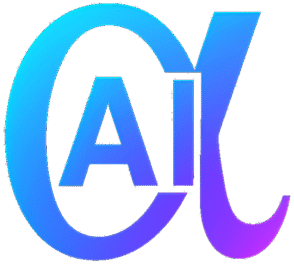Table of Contents
Toggle
Artificial Intelligence (AI) is reshaping the world around us at an incredible pace. Whether it’s improving medical diagnoses, powering smarter financial decisions, advancing immersive gaming, or optimizing farming techniques, AI is leaving its mark on every sector. For students thinking ahead about career possibilities, exploring AI-related roles could open the door to exciting and future-proof opportunities. This guide will walk you through the top 5 AI careers for students, highlighting what each role involves, the skills required, average salaries, and how you can start preparing for them today. And don’t worry—we’ll keep it friendly, practical, and easy to follow.
1. Machine Learning Engineer

What They Do
Machine Learning (ML) Engineers are like the architects of smart machines. They design systems that enable computers to analyze data, recognize patterns, and improve their performance over time without being explicitly programmed. Ever used Netflix? Those movie recommendations? Yep, that’s ML at work.
Skills Needed
To become a Machine Learning Engineer, students should:
- Learn programming languages like Python, R, or Java
- Understand math concepts like statistics, probability, and linear algebra
- Get comfortable with tools like TensorFlow, PyTorch, and Scikit-learn
- Learn how to work with cloud platforms such as AWS, Google Cloud, or Azure
Salary Range
In the U.S., ML Engineers earn between $120,000 and $160,000 annually. With experience, this can go up significantly.
Where to Start
Begin with basic Python courses, then explore specialized machine learning classes. A great way to dive in is by taking Andrew Ng’s popular machine learning course available on Coursera—it’s beginner-friendly and highly recommended
2. Data Scientist

What They Do
Data Scientists are data detectives. They dig into big sets of numbers to find hidden patterns, trends, and insights. Their findings help businesses make smarter decisions, like which product to launch or what customers want.
Skills Needed
- Strong command of Python, R, and SQL.
- Familiarity with data visualization platforms such as Power BI or Tableau can help.
You present insights clearly and effectively Statistical and machine learning know-how. - Curiosity and a problem-solving mindset.
Salary Range
Most Data Scientists make between $110,000 and $150,000 per year
How to Begin
Start by learning SQL and Excel. Then, explore Python libraries such as Pandas and Matplotlib. Joining Kaggle challenges is an engaging way to practice real-world data problems and grow your expertise.
3. AI Research Scientist

What They Do
Imagine being the person who helps invent the next ChatGPT or self-driving car tech. That’s what AI Research Scientists do. They dive deep into cutting-edge AI and often work at research labs, universities, or big tech firms.
Skills Needed
- Deep understanding of machine learning, deep learning, and neural networks
- Strong mathematical foundation (linear algebra, calculus, etc.)
- Experience in writing and publishing scientific research papers
- A Master’s or PhD in AI, Computer Science, or related fields is usually required
Salary Range
$130,000 to $180,000+ annually, especially in major firms like OpenAI or Google DeepMind.
How Students Can Start
Read academic research on sites like arXiv.org, replicate studies, and contribute to open-source AI models. Publishing your mini-projects or papers can boost your credibility.
4. Robotics Engineer

What They Do
These engineers bring AI into the physical world. From building autonomous drones to surgical robots, Robotics Engineers mix software, electronics, and mechanics to create intelligent machines.
Skills Needed
- Programming languages: C++, Python
- Hardware: Arduino, Raspberry Pi
- Robotics Operating System (ROS)
- Mechanical design and automation
Salary Range
Typically ranges from $100,000 to $140,000 per year.
Starting Point for Students
Join your school’s robotics club or start building your robot projects. Platforms like Tinkercad, Arduino, and Udacity have beginner-friendly tutorials.
5. AI Product Manager

What They Do
Think of them as team leaders who understand both AI tech and business needs. AI Product Managers work with engineers and designers to launch smart products that solve real problems, like voice assistants or recommendation engines.
Skills Needed
- Basic knowledge of machine learning and data science
- Excellent communication and project management
- Understanding of customer needs and market trends
Salary Range
Between $100,000 and $130,000, and even more with experience.
How to Begin
Explore product management certifications. Learn about customer development, user experience (UX), and agile methodologies. Try managing your small tech project!
How to Start Your AI Career as a Student

1. Choose the Right Learning Resources
- Coursera, Udemy, edX for structured courses
- YouTube for free tutorials
- Blogs, newsletters, and Reddit communities to stay updated
2. Work on Real Projects
- Try sentiment analysis on tweets
- Create a chatbot
- Predict house prices or stock trends
3. Get Certified
- IBM AI Engineering Professional Certificate
- Google TensorFlow Developer Certificate
- Microsoft AI Fundamentals (AI-900)
4. Build Your Portfolio
Upload your code to GitHub, write project summaries on Medium, or build a personal website to showcase your work.
5. Join AI Communities
Get involved in AI communities, join coding competitions, and build relationships with industry professionals through platforms like LinkedIn.
The Future of AI Careers
AI isn’t going away. It’s expected to create millions of new jobs in the next decade. Whether you’re interested in technology, business, or science, there’s a role for you in AI. And the best part? You can start learning right now, from your laptop, at your own pace.
Conclusion
Choosing a career in AI is like buying a ticket to the future. It’s one of the most exciting and promising fields out there. Whether you want to build machines, analyze data, do research, or manage products, there’s a place for you in AI. From breakthroughs in healthcare and finance to AI in daily life, its influence is growing rapidly. Start small, stay consistent, and always stay curious. With hard work and passion, you can be part of the next generation of AI innovators.
FAQs
1. Do I need a computer science degree to work in the field of AI?
Yes! Many AI professionals are self-taught or come from different academic backgrounds. What matters most is your skills and project experience.
2. Which AI job is best for beginners?
Data Analyst or Junior ML Engineer roles are great entry points that don’t require a deep background in AI.
3. Are AI jobs available remotely?
Absolutely. Many AI roles offer remote or hybrid work options, especially in startups and global tech companies.
4. What tools should I learn for an AI career?
Python, Jupyter Notebooks, TensorFlow, PyTorch, Scikit-learn, and data visualization tools like Tableau.
5. Is it too late to learn AI?
Not at all! AI is still growing, and there’s never been a better time to get started.


Pingback: Top 5 Powerful AI Apps for Students 2025 to Boost Learning
Pingback: Earn Money Using AI Tools – 5 Best Student Methods
Pingback: New AI Tools for Students in 2025: 10 Powerful Benefits
Pingback: AI Image Generator Tools: 5 Best Picks to Boost Creativity - AlphhaAI